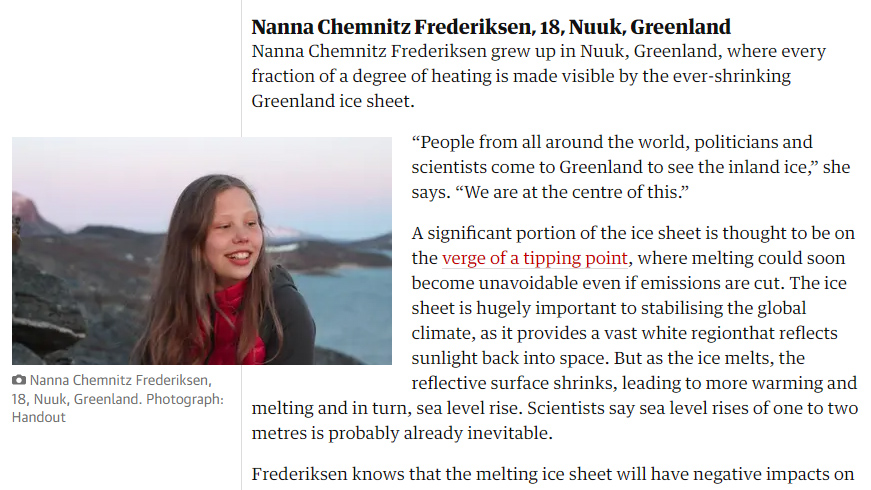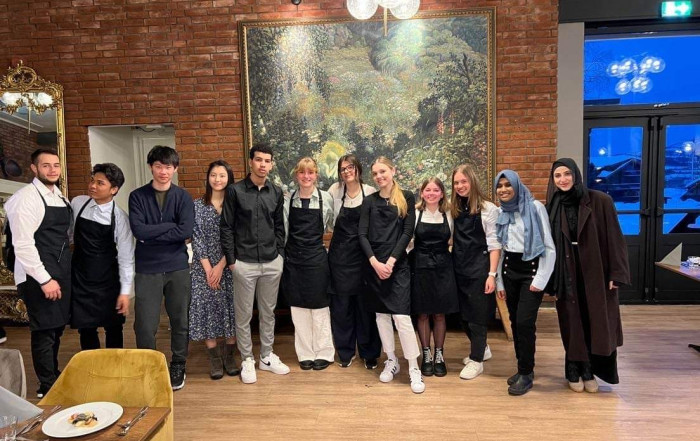“People from all around the world, politicians and scientists come to Greenland to see the inland ice,” she says. “We are at the centre of this.”
A significant portion of the ice sheet is thought to be on the verge of a tipping point, where melting could soon become unavoidable even if emissions are cut. The ice sheet is hugely important to stabilizing the global climate, as it provides a vast white region that reflects sunlight back into space. But as the ice melts, the reflective surface shrinks, leading to more warming and melting and in turn, sea level rise. Scientists say sea level rises of one to two metres is probably already inevitable.
Frederiksen knows that the melting ice sheet will have negative impacts on communities across Greenland, especially in northern settlements such as Qaanaaq where permafrost melting is destabilizing homes and roads and impacting how fishers and hunters operate.
But her real concern lies on the impact it will have globally. “I am not so scared of what the effects of the melting of ice in Greenland will be,” Frederiksen says, “It scares me what effect it can have for the rest of the world.”
Latest News
Ridderrennet: Embracing Diversity through Winter Sports
At our College, we prioritize empowering students to engage with the world around them and embrace diverse perspectives. One such transformative opportunity that has left an indelible mark on our students is volunteering [...]
Graduation 2023: Celebrating the Graduates of UWC Red Cross Nordic
With a mix of emotions, we bid farewell to the exceptional graduates of UWC Red Cross Nordic, whose presence has left a permanent mark on our hearts and the fabric of our tight-knit [...]
Navigating Neutrality: Red Cross and Red Crescent Day at RCN
May 8th marked World Red Cross and Red Crescent Day, a day dedicated to recognizing the essential principles of voluntary service and neutrality. The Red Cross movement and UWC have formed a unique [...]




